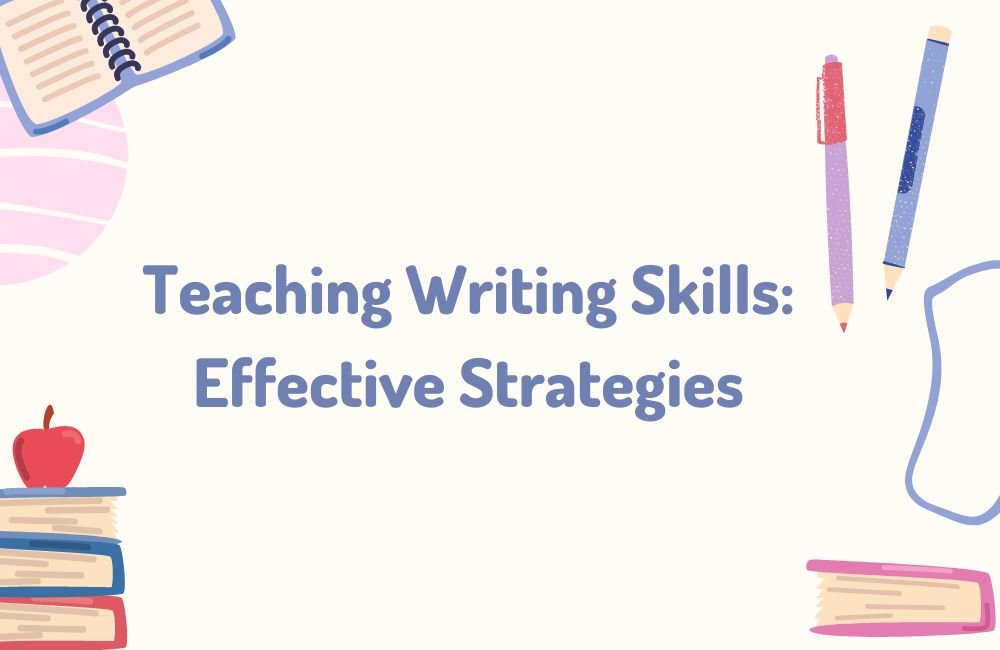How do you guide students in writing?
How do you guide students in writing? Writing skills hold immense value in the academic and professional worlds. The ability to express oneself through the written word is a great asset. It ranges from creating an essay to communicating effectively in the workplace.
Writing skills are more than just putting words together. They involve the ability to articulate thoughts, ideas, and information in a clear, coherent, and organized manner.

Many students struggle to find their voice. Therefore, transforming their thoughts and ideas into coherent words on paper often poses a significant challenge.
A tool like paraphrasingtool.ai can be significantly helpful in this regard. It helps students overcome the challenges of plagiarism and incorrect grammar by offering features like grammar checkers.
By using the rephrasing tool, students can develop a stronger command over language. They can improve the flow and coherence of their writing, and enhance their overall writing proficiency.
Let’s discuss the importance of practical writing skills for students.
Why Writing Skills Matter
Academically, strong writing skills are fundamental for success. Clear and concise writing enables students to convey complex ideas and arguments with clarity.
Students with well-developed writing skills are more likely to earn higher grades, demonstrate better comprehension, and excel in critical thinking tasks.
Additionally, when applying for Tide and Downy Back to School Scholarship or college, students with polished writing skills can create different types of essays that highlight their unique qualities, setting them apart from the competition.
Strong writing skills continue to be highly sought after in the professional realm. Employees who possess excellent writing skills demonstrate professionalism and competence. They gain the trust and respect of colleagues and superiors.
Find on benheine.com original news articles about e-marketing, entrepreneurship, artificial intelligence, finance, copywriting, technology, education, content creation, video making, photography, art, web design, productivity, writing, informatics, and more!
In short, effective writing skills continue to be fruitful in every aspect of life. Therefore., students are encouraged to polish this skill from the very beginning. Below are given the types of writing skills where students can excel.
Variety in Writing Skills: A Closer Look

Different forms of writing encompass various styles and genres that serve distinct purposes and audiences. Here is a brief overview of some common forms of writing:
- Narrative Writing: This form tells a story, often involving characters, plot, and setting. It can be fiction or non-fiction, and its primary aim is to entertain or engage readers.
- Descriptive Writing: Descriptive writing vividly portrays people, places, objects, or experiences, using sensory details and imagery to create a vivid picture in the reader’s mind.
- Academic Writing: Academic writing is used in educational settings and follows specific formats and conventions. It includes research papers, essays, dissertations, and scholarly articles, aiming to convey knowledge and contribute to a specific field of study. The importance of education in our lifes cannot be overstated. It serves as the foundation for personal and societal growth, shaping individuals’ skills, knowledge, and critical thinking abilities, while also driving progress and innovation in various fields.
- Creative Writing: Creative writing allows for artistic expression and includes genres like poetry, short stories, plays, and novels. It emphasizes imagination, literary techniques, and personal style.
- Business Writing: Business writing encompasses various forms, such as emails, memos, reports, proposals, and professional correspondence. It emphasizes clarity, conciseness, and effective communication in a business context.
Each form of writing requires different approaches and techniques, tailored to its specific purpose and audience. Here is how you can guide students to polish these writing skills.
Teaching Writing Skills: Effective Strategies

Teaching writing skills is in itself an art. Here are key techniques to effectively guide students in writing: When it comes to improving your writing skills, the choice of coaching program can be pivotal. Compare & Select the Best Coaching for You is not merely a catchy phrase; it’s a crucial directive for anyone seeking to enhance their writing abilities. The world of writing is vast and diverse, encompassing academic, creative, professional, and personal aspects. Therefore, it’s essential to carefully consider your goals and preferences when choosing a coaching program. Take the time to explore different options, assessing factors like curriculum, teaching methods, and instructor expertise
Scaffolded Writing Process
A scaffolded writing process is an instructional approach that involves breaking down the complex task of writing into manageable steps and providing support and guidance to students at each stage.
In this writing process, teachers provide a clear and structured framework for students to follow, starting with brainstorming ideas and organizing them into an outline.
Students receive explicit instructions and examples that illustrate the key concepts and techniques related to each step of the writing process.
The goal is to help students develop their abilities in generating ideas, organizing thoughts, and effectively expressing themselves in writing.
Modeling and mentoring
Modeling and mentorship are essential in teaching writing skills. As an educator, you can demonstrate effective writing techniques by sharing your own writing samples as examples.
By doing so, you show students how to construct sentences, organize ideas, and revise their work.
Additionally, offering constructive feedback is crucial. By providing personalized guidance and engaging in one-on-one or small group discussions, you can address individual strengths and areas for improvement.
This allows students to receive specific feedback tailored to their needs, fostering their growth as writers.
Frequent Writing Practice
Vocabulary and Language Development
Vocabulary and language development are vital aspects of writing. Having a strong vocabulary allows students to choose the right words to express their thoughts effectively.
Vocabulary and language develop by reading widely and engaging in word-learning activities. Students should also focus on using diverse sentence structures, transitions, and descriptive language.
By varying their sentence structures, they can make their writing more interesting and engaging. Using transitions helps connect ideas smoothly, creating a cohesive flow in their writing.
Paraphrasing and Plagiarism Awareness
Teach students about the significance of paraphrasing and avoiding plagiarism. Engage students in discussions on ethical writing practices and the importance of crediting sources
Introduce them to tools like Paraphrasingtool.ai, which can assist in generating alternative phrasings while maintaining the original meaning.

The above screenshot shows how the “Sentence Rephraser” mode of Paraphrasingtool.ai has presented the options of writing one sentence in multiple ways.
The “academic” and “creative” modes are immensely helpful for the students. The academic mode caters to the needs of students engaged in scholarly writing, research papers, and academic assignments.

On the other hand, the “creative” mode sparks the imagination of students involved in creative writing projects such as stories, poems, or personal narratives.

Revision and Editing Skills
Teach students the value of revising and editing their work. Emphasize the importance of reviewing content for clarity, coherence, grammar, punctuation, and spelling.
Encourage them to use proofreading tools and resources like Paraphrasingtool.ai to refine their writing and eliminate errors.
Explore different tools
Incorporate technology tools like Paraphrasingtool.ai to assist students in paraphrasing and refining their writing. The integration of grammar checkers and plagiarism checkers is also highly valuable in the writing process.
Grammar checkers serves as digital proofreaders. By using this tool, students can enhance the clarity and correctness of their writing, developing a stronger command of the English language.
On the other hand, tools like plagiarism checkers empower students to take responsibility for their writing and develop good research and citation habits.
Conclusion
We have tried to discuss valuable insights into guiding students to write effectively.
By incorporating the strategies outlined in this guide, students can develop a strong foundation in writing and improve their overall proficiency.
It is important to emphasize that strong writing skills have long-term benefits in both academic and professional settings.
Clear and articulate writing enables students to excel academically, express themselves effectively, and earn higher grades.
Therefore, it is important to encourage students to embrace the art of writing, practice consistently, and actively seek opportunities to develop their skills.





